Tokyo Re-design: Revitalising Local Communities through Sentō Bathhouses – Community Renovation Conference at Japan Creative Centre

On 16 August 2025, nearly two months after the Intensive Architecture Workshop in Tokyo 2025 (IAWT2025), the Japan Creative Centre (JCC) generously hosted a collaborative conference led by students from the Department, together with their peers from participating Japanese universities, including Tokyo University of Science, Shibaura Institute of Technology, and Nagoya City University. The event highlighted insights gained from the workshop, a programme dedicated to exploring innovative approaches to community revitalization through the adaptive reuse of Sentō bathhouses (銭湯再生).
Reimagining Sentō as Community Hubs
Traditionally serving as public bathing facilities, Sentō bathhouses in Japan are experiencing a remarkable transformation. Today, many are being revitalised as vibrant neighbourhood hubs, incorporating cafés, libraries, co-working spaces, and cultural programs. The conference highlighted the crucial role that young designers play in these initiatives, reimagining Sentō as spaces for inclusive interaction that thoughtfully balance solitude and community.
A key theme discussed was the Japanese cultural concept of “察するコミュニケーション” (non-verbal communication), which emphasises the subtle coexistence of social engagement and personal retreat. Designing spaces that honour this cultural sensibility was identified as a fundamental principle for effective community renovation.
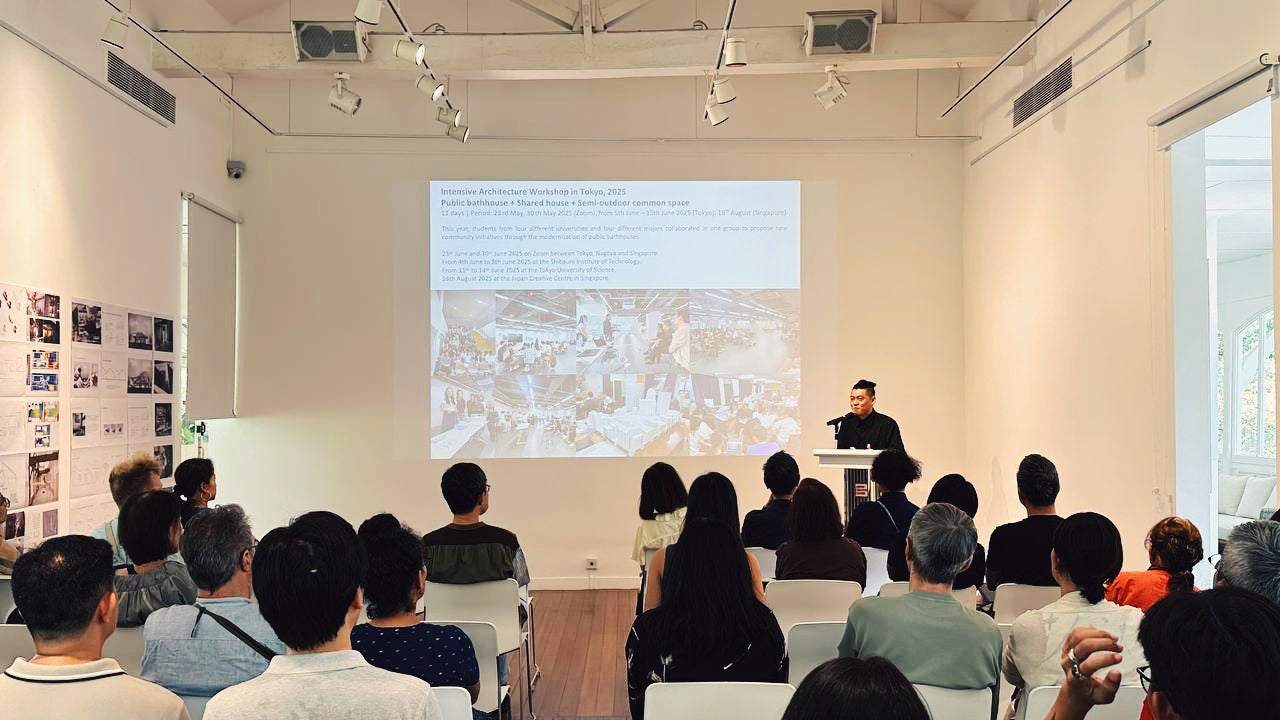
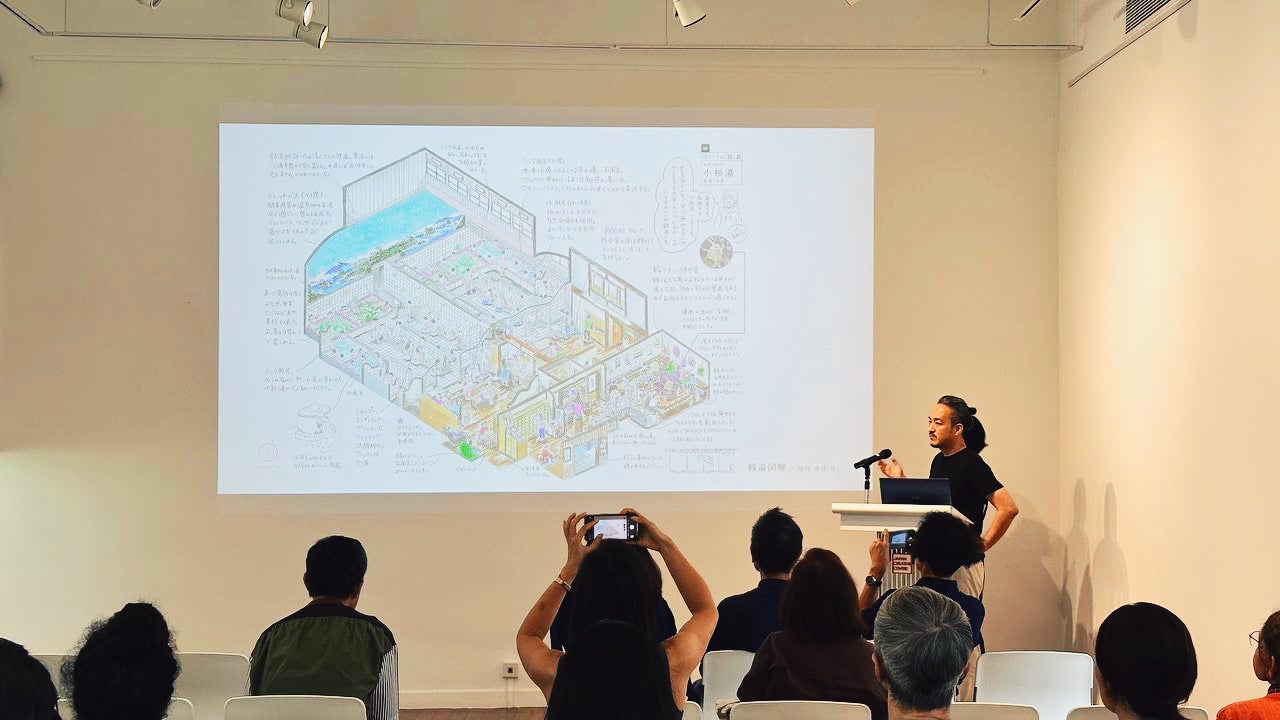
Opening remarks were delivered by Senior Lecturer Dr. Shin Yokoo, who reflected on past proposals and introduced this year’s collaborative assignment, providing an overview of the students’ experiences during the workshop. This was followed by a roundtable discussion with New & Kawakami Architects, who explored the theme “銭湯-温泉-世界のお風呂” (Sentō – Onsen – The World’s Baths), offering a broader perspective on bathing cultures around the world.
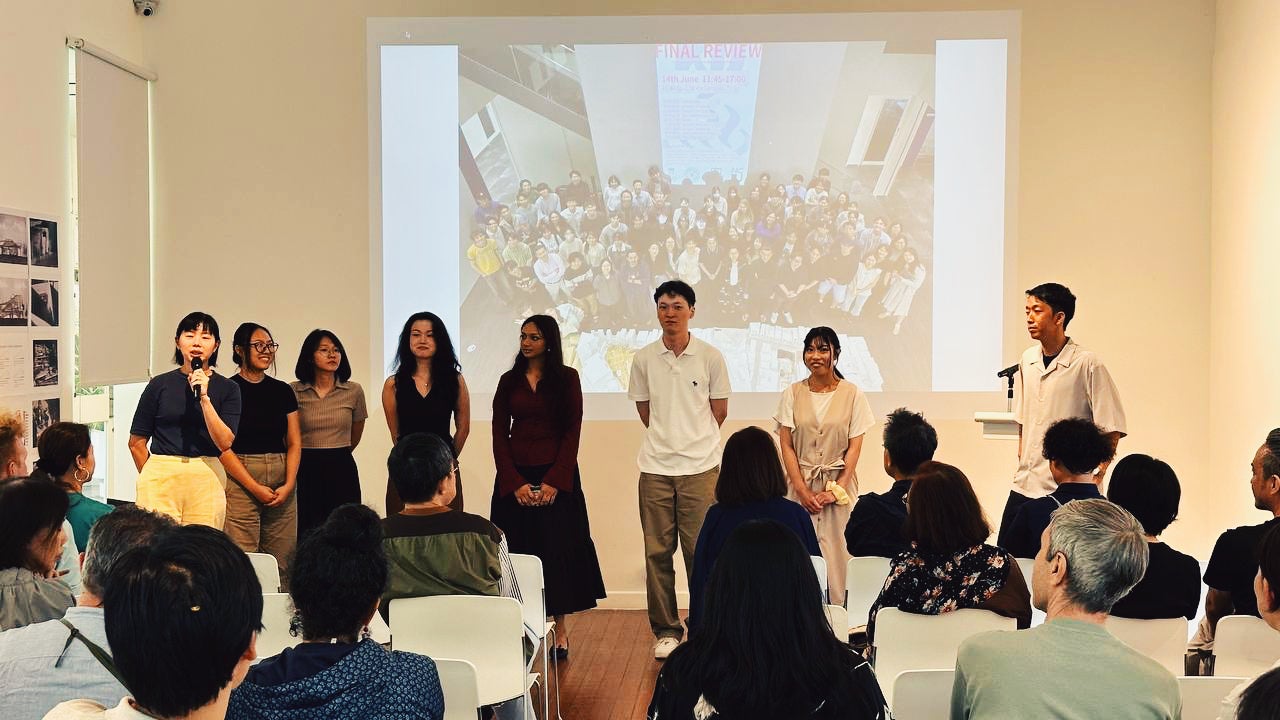
A student presentation titled “What is the Singaporean Sentō?” showcased collaborative ideas from our students and graduates (Ahrielle Mathews, Hnin Ei Lwin, Yang Da, Zhou ZhouZhou), together with students from Tokyo University of Science (Aino Kuboki, Shunsuke Takada, Wataru Kamata). This dialogue highlighted the potential for Sentō-inspired spaces to foster new, inclusive forms of community engagement in both Singapore and Japan.
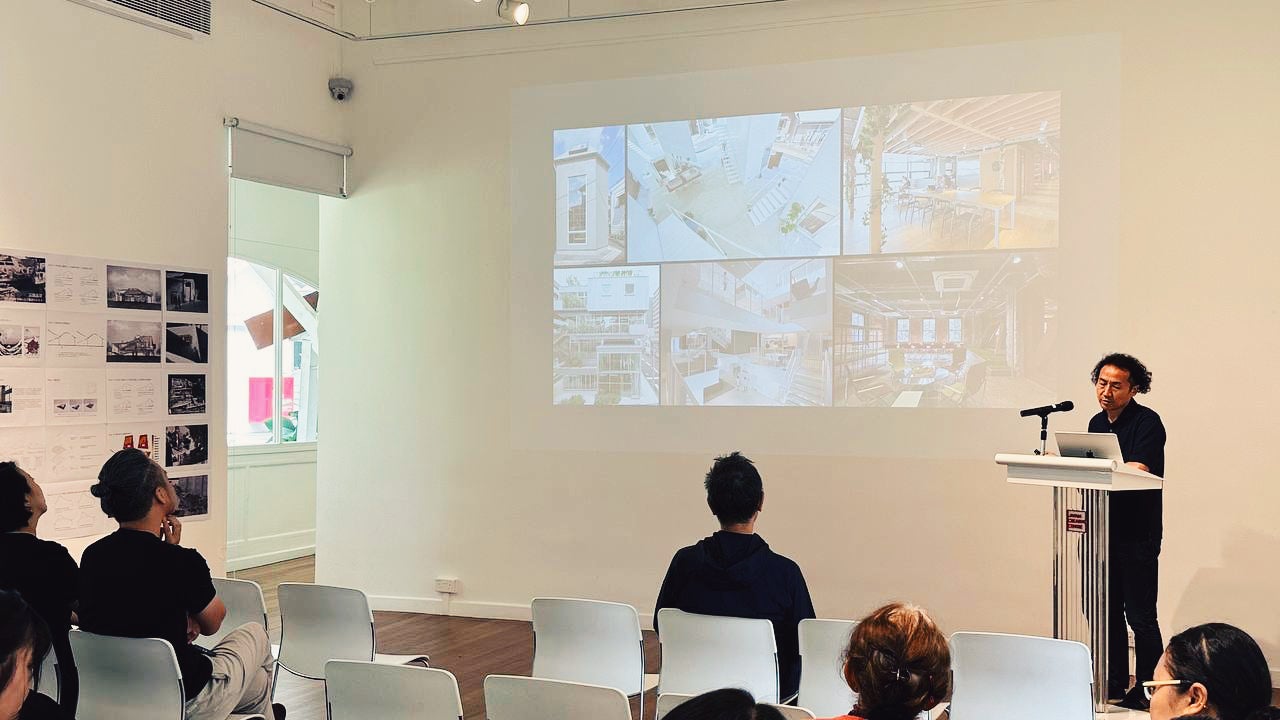
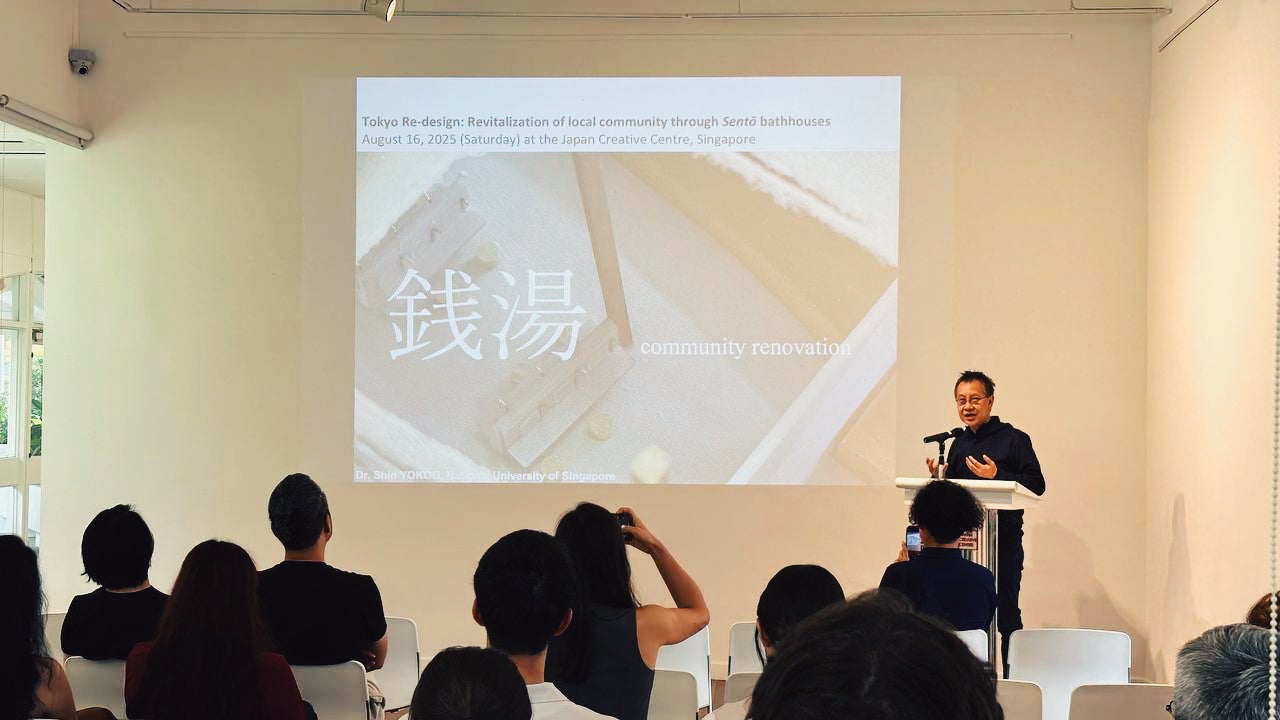
Attendees were also inspired to sit in for a guest lecture by Assoc Prof. Osamu Nishida (Tokyo University of Science) focused on Interactive Architecture, linking theory to practice in contemporary design. He showcased various of his works as an example of how architecture encompasses both seen and unseen aspects of the design process. Closing remarks were delivered by Head of Department Prof. Jeffrey Hou, followed by a reception where participants and guests could further exchange ideas in an informal setting.
Workshop Background
The conference drew from the outcomes of IAWT2025, a 10-day program (June 4–June 14, 2025) that brought together 65 students and 14 professors from institutions including NUS, Shibaura Institute of Technology, Tokyo University of Science, and Nagoya City University. The program fostered cross-cultural collaboration by forming project groups with students from four different majors, guided by professors specialising in architectural history, environmental design, structural design, and architectural design.
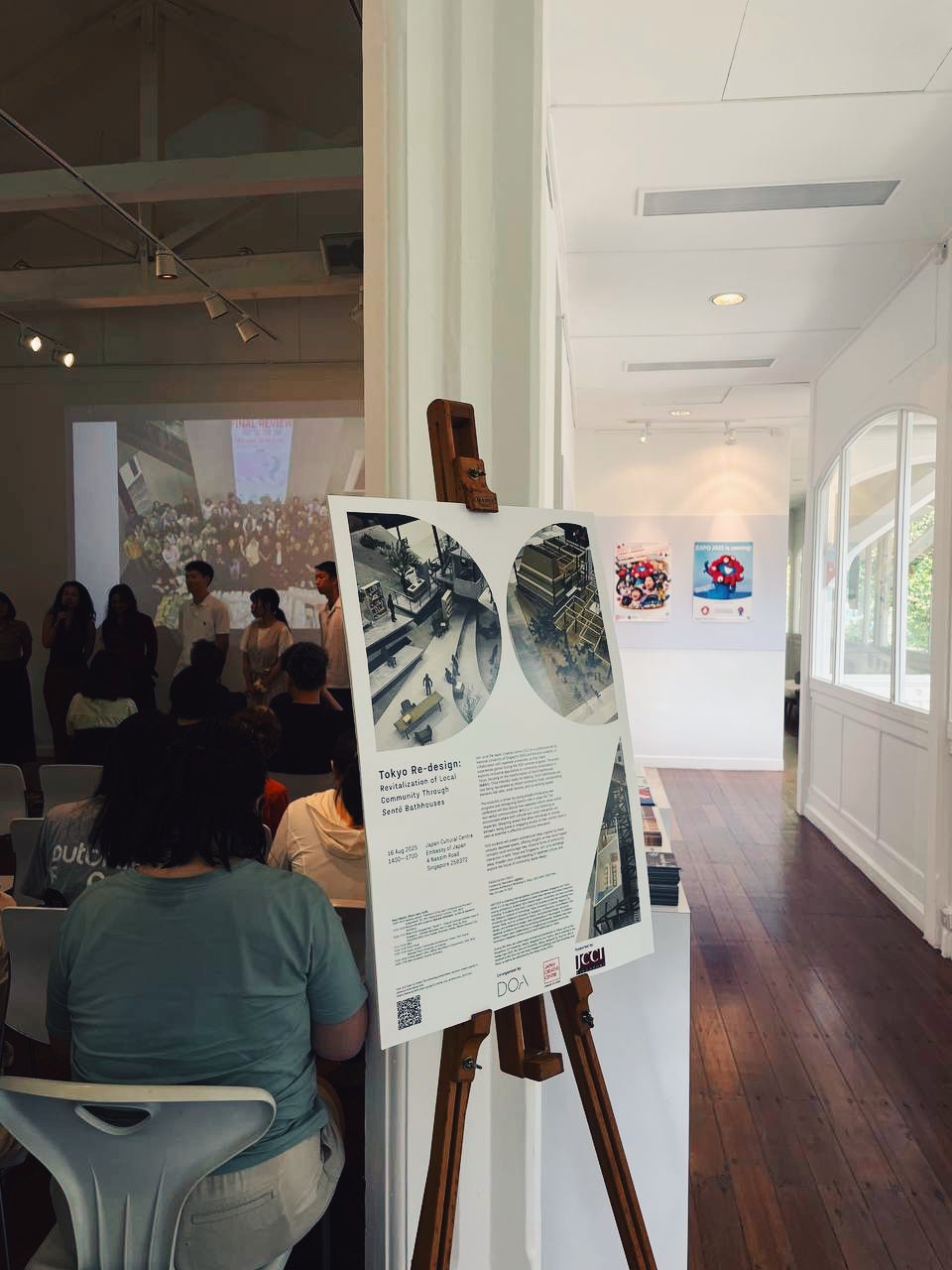 |
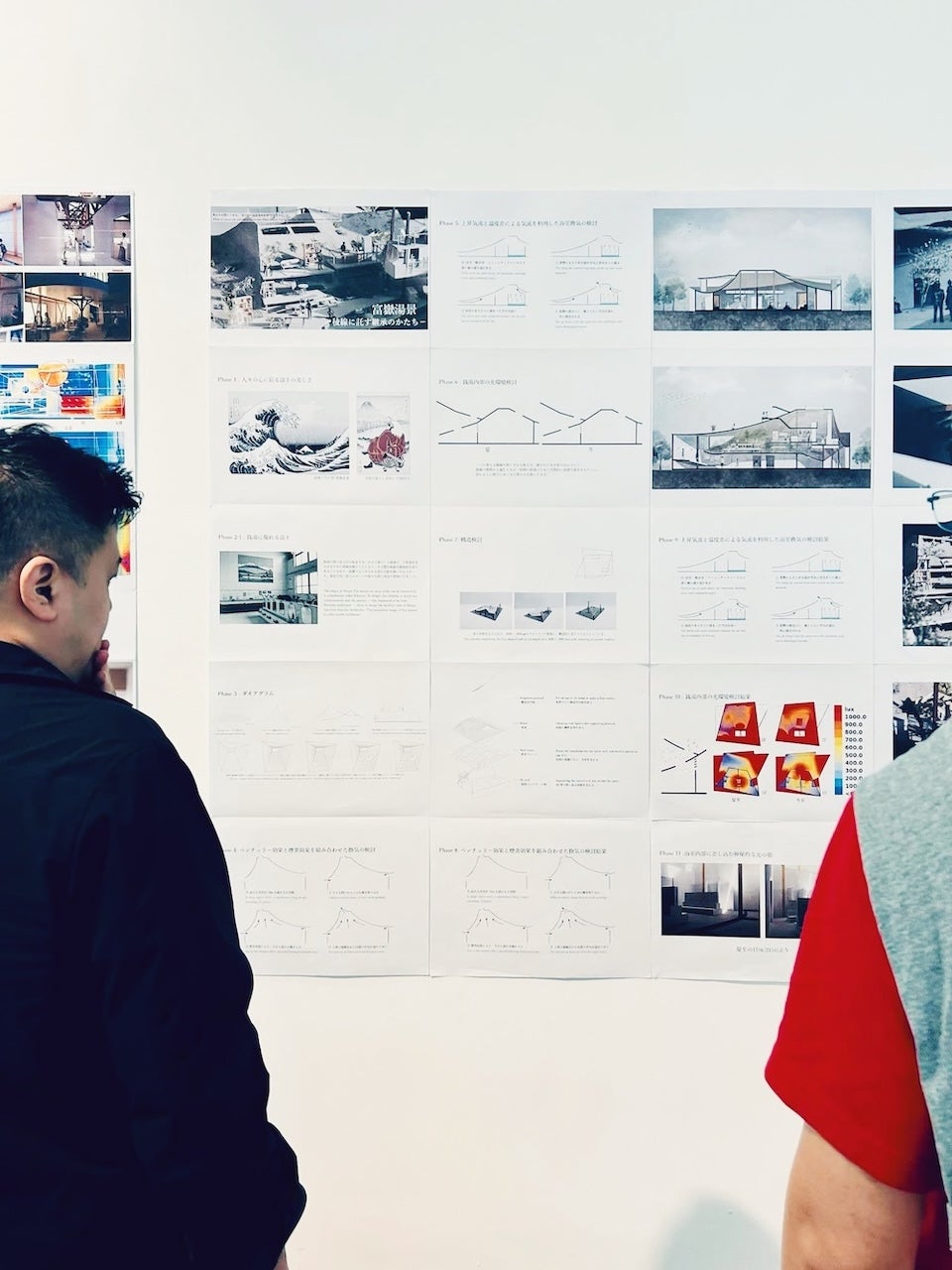 |
Students also engaged with Tokyo’s architectural heritage through site visits to landmarks such as the Musashino Art University Library by Sou Fujimoto, the Tama Art University Library by Toyo Ito, and KAIT Plaza & KAIT Workshop by Junya Ishigami. These visits provided inspiration for rethinking the spatial, cultural, and social dimensions of Sentō revitalisation.
The JCC conference effectively showcased how architectural education and cross-cultural collaboration can generate innovative, community-centred design approaches. By reimagining Sentō as flexible, socially responsive spaces, the event offered valuable insights not only for Japan but also for Singapore, where similar community-driven initiatives could be developed.
The discussions reinforced the importance of cultural sensitivity, interdisciplinary cooperation, and youth-led innovation in shaping the future of community spaces.
To learn more about the Intensive Architecture Workshop in Tokyo 2025 (IAWT2025), click here.
This article was contributed by Celeste Chow Wei and Ng Xiu Yuan Ralf, both second-year students in the BA Architecture Programme. This event is supported by the Japanese Chamber of Commerce & Industry Singapore (JCCI).